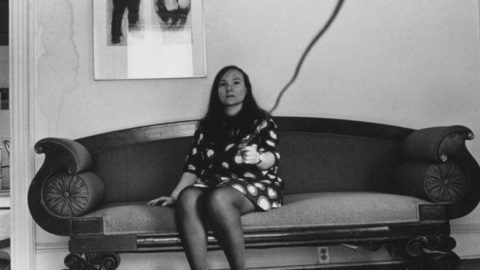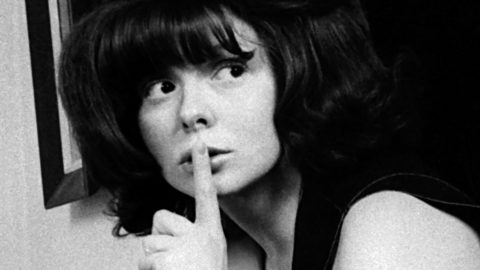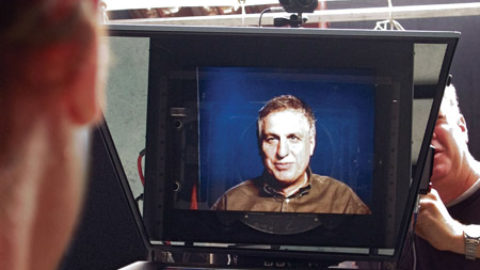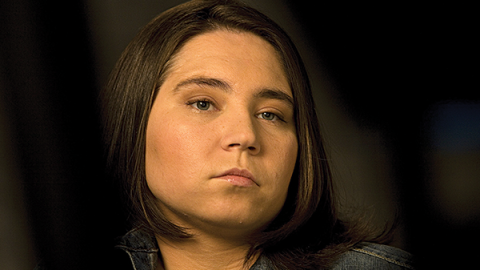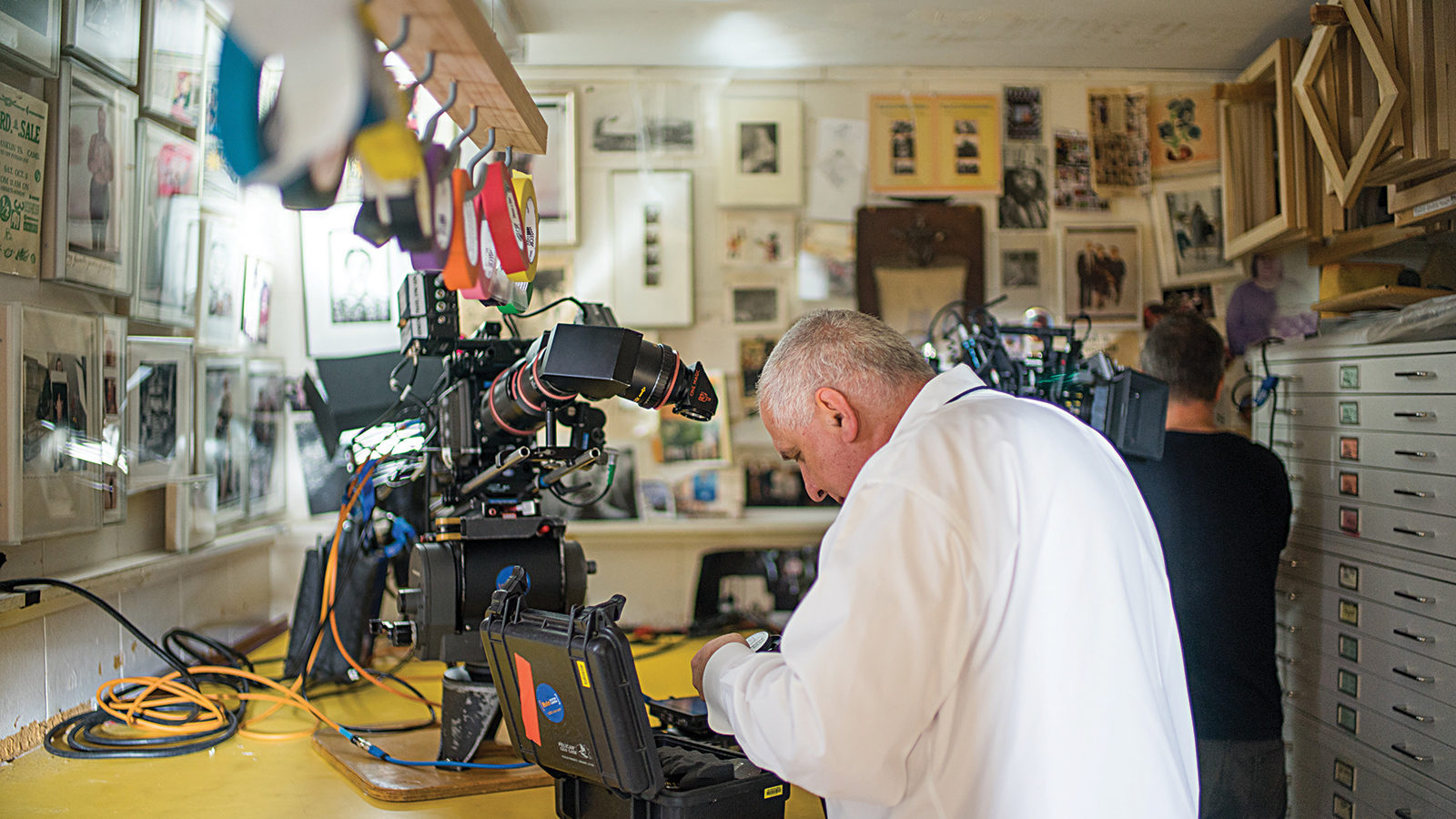
Who’s Asking?
I’ve made several careers out of interviewing people—private investigator, commercial director, documentary filmmaker. I’ve interviewed hundreds of people from all walks of life. But never before have I done a series of interviews with someone so close to me as Elsa Dorfman, my dear friend of many years and the subject of my new film The B-Side.
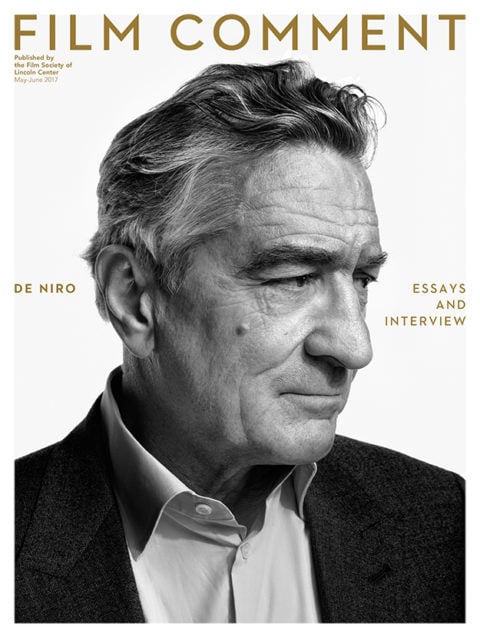
I loved interviewing Elsa on camera. She was so natural I sometimes forgot we weren’t just sitting around her dining room table at one of our get-togethers. And I believe this comes across in the film. It has a warmth and familiarity that makes me smile no matter how many times I’ve seen it. Film Comment asked me to reflect on the art of the interview, and how this time was different. I’m not sure of the answers myself, but I wanted to try the reflection part anyway. What follows is my interview with myself.
I’m really not sure whether I want to interview you. I’m not even sure that I believe in the interview process at all. And I’ve been told that you’re a notoriously difficult person. Evasive, rarely forthcoming, and deeply self-deceived about who you are and what you’re doing.
Well, doesn’t that make me the perfect candidate for such a thing? Are you really interested in finding out anything about me, anyway? I thought that the whole purpose of an interview was simply to confirm things that you already believe you know. Or, failing that, to at least alert other people to the fact that you think you’re smart.
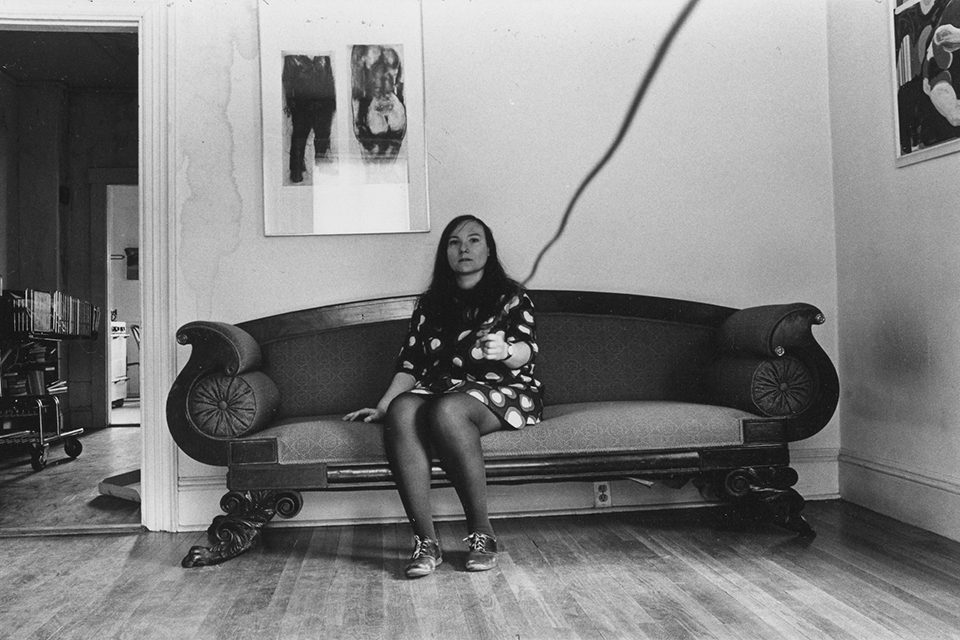
Indeed. That does sound more or less correct. Then again, I like to think of it as a reminder that I’m still alive and not dead. And a reminder about the kinds of things that I might be interested in rather than what might interest my interview subject. Do you really think that most of human interaction is about finding out something from the person you’re talking to? That seems so 19th-century.
Thank you for pointing that out. I like to think of an interview as an excursion into the void. Maybe I can actually figure out what I think about something. What I really think about something.
So, what’s my purpose?
You have none. You’re there just to make me look clever. Or probably, as far as you’re concerned, to make yourself look clever.
Janet Malcolm somewhere recounted that she had done a fabulous interview, but she later read another interview with that same person and it was just as good as the one she had done. I always wondered about this remark. Is she expressing false modesty? Is she telling us that it doesn’t really matter who does the interview, that the answers will always be the same? That questions, by their very nature, are irrelevant? Or, at best, rhetorical questions? Questions that we never want answered? Questions designed to make us think about the question but not any putative answer? In short, what the hell is going on here?
It sounds like you’ve been taken for a ride. Have you never found out something from asking a well-designed question?
Let me think. People have blurted out things to me that are totally unexpected and I’ve been surprised. I’ve often wondered if their disclosure is because of me. Could I be that destabilizing element in their life? Some Janus-headed figure that expresses so many different emotions that I could say almost anything? Although I know we assume that the purpose of most interviews is to elicit information that the interviewee doesn’t want to give. Things like the details of medical experiments that they’ve done on children. That is, if they’ve done medical experiments on children. And, if, presumably, they have been reluctant to talk about it up to this point.
Or is the purpose of an interview just a search for something new? A clarification, an enhancement?
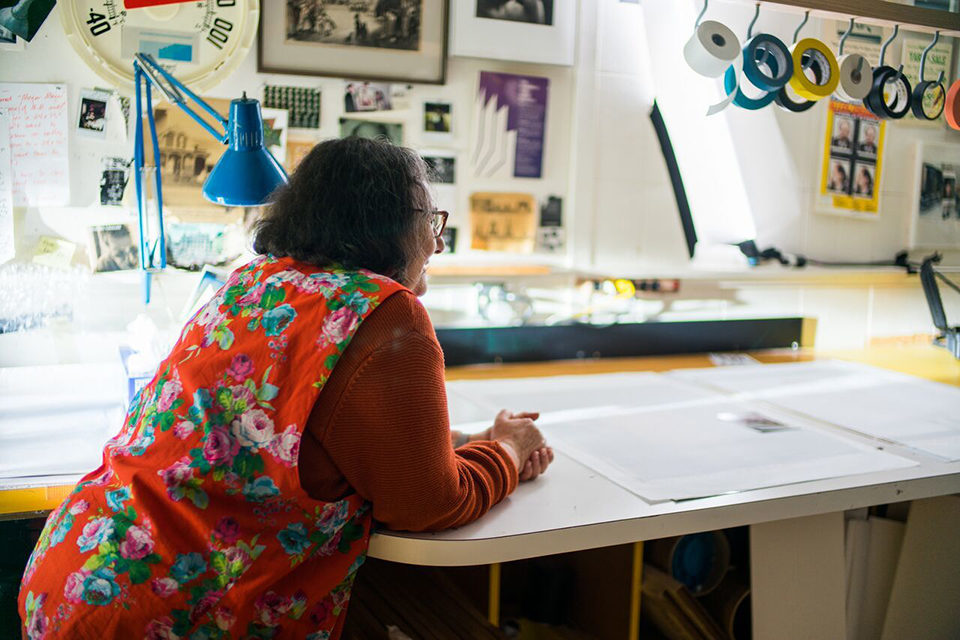
But then we never know when we look out at the world whether we’re looking at a mirror, or whether we actually see something of the world. Ultimately if you ask me why I’m interviewing you, or anybody: I’m interested in uncovering something destabilizing, something unfamiliar, something surprising, maybe even something awful. I’ve been privileged as an interviewer to hear some of the most god-awful crazy stuff, and for that I am truly grateful.
Could you give me an example?
Why, thank you for asking! I was interviewing Ed Gein at Central State Hospital for the Criminally Insane (a good name for an insane asylum, don’t you think?) in Waupun, Wisconsin. Ed Gein was notorious as a grave robber, cannibal, necrophiliac, and human taxidermist. I’d spent the afternoon in genial conversation with Ed, talking about a number of his favorite topics. For example, the things that Freud thought about and how they show how crazy Freud really was. It was as if I was interviewing him, but he was interviewing Freud as part of my interview with him. And I can assure you that Freud got the worst of it. As it turns out, according to Ed Gein, the father of psychoanalysis had an unhealthy interest in sex. But this isn’t really the point of my story. Yes, I was interested in Ed Gein, but I was also interested in the superintendent of Central State Hospital, Dr. Edward F. Schubert. Dr. Schubert liked confiding in me. And on one occasion, he was interested in talking about Gein’s cannibalism. I tried to lead him on, expressing mock incredulity, and I said, “Do you really think that there’s any truth to the claims that Ed was a cannibal?” He looked at me. I don’t believe it was feigned horror, but rather the real thing. He said, “Absolutely not. I asked Ed if he was a cannibal and he said he had tasted human flesh many times, but it tasted terrible.”
And your conclusion?
As long as I can hear lines like that, I’ll continue talking to people. It really doesn’t matter whether it’s an interview or something else altogether. It makes it all worthwhile.
You seem to believe that questions get you nowhere.
Not completely true. They give you practice asking questions. But I’m not at all sure where that gets you. The most interesting things I have heard have never been in response to prepared questions, although they may have occurred in an interview situation. Think of an interview as a formalized human interaction. Somewhat like talking to your barber. They may have the need to tell you something and you may have the need to hear it. Isn’t that the best we can do?
That sounds so cynical.
Not at all. It’s an affirmation of the social value of solipsism. I like to remind people that the detail that cracked open the Thin Blue Line case—the thing that led to an innocent man being released from prison after he narrowly escaped his date in the Huntsville execution chamber—was offered in an interview. But remember this: it wasn’t offered in response to a question. My interview subject, the wacko platinum-blonde eyewitness Emily Miller, evidently was feeling guilty about something. How was I to know, in my benighted, self-absorbed state? She was guilty about the fact that she positively identified the defendant (as it turns out, the innocent defendant) at his capital murder trial even though she had failed to identify him in a police lineup. She told me this without any prompting. I’m pretty stupid, so I asked her, “You say you failed to identify the defendant in a police lineup. How do you know?” She got angry with me. She said, “I know.” I said, “I know you know, but how do you know?” She said, “I know because the policeman sitting next to me told me I had picked out the wrong person and then pointed out the ‘right person’ so I would never make that mistake again.”
I guess you’re hoping that I’ll inadvertently confess.
Yes, indeed. I’m waiting. Hold on a minute. You’re supposed to be promoting The B-Side, your new film about Elsa Dorfman. I guess this is a perfect example of the solipsism I was talking about.
You’re absolutely right, I was. Thank you for getting around to that. Let me pick up the thread. Elsa Dorfman, unprompted, told me some amazing things. Here’s one of them: “If you’re a kind of an ‘Oh, this will be the same forever’ person, or if you’re a photographer, you’re always nailing down what’s the now… Then you realize it doesn’t matter how much you try to nail down the now; the now is racing beyond you.”
The B-Side opens June 30 at the Film Society of Lincoln Center.
Errol Morris is the Academy Award–winning director of The Thin Blue Line and many other films.



